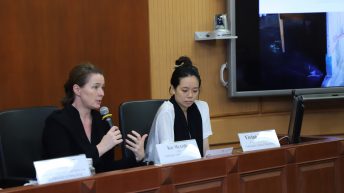Date: 03Oct 2015
Existing protections and institutional capacities to effectively combat domestic violence continue to be challenged by cultural and religious frameworks that predominate individuals’ private and public lives. Inadequate attention to the internal and external conflicts in value systems these measures represent for ethnic minority or immigrant victims forces the women to live at the peripheries of society, in isolation and grossly vulnerable to future violence and at risk of falling through ‘the justice gap’.
On 3rd October 2015, Ms. Kapai launched the findings of her comparative empirical study into help-seeking behaviours of ethnic minority and immigrant women in the United Kingdom and Hong Kong. Her study aimed at critically examining the assumptions underlying existing laws and policies governing protection against domestic violence. The findings bear out the importance and indispensability of accounting for factors that impact help-seeking behaviour, including cultural and religious value systems, socioeconomic factors and immigration status, through an intersectional impact assessment and analysis.
She also presented recommendations for best practices and strategies to address the justice gap, concluding that substantive equal access to protections and remedies against domestic violence for all victims must be the benchmark against which to assess the effectiveness of the state’s legal framework in protecting all women against violence.




